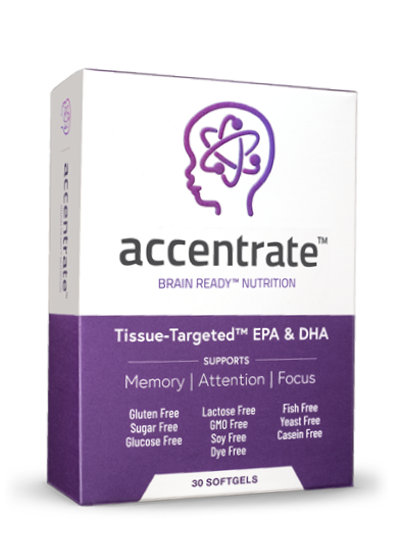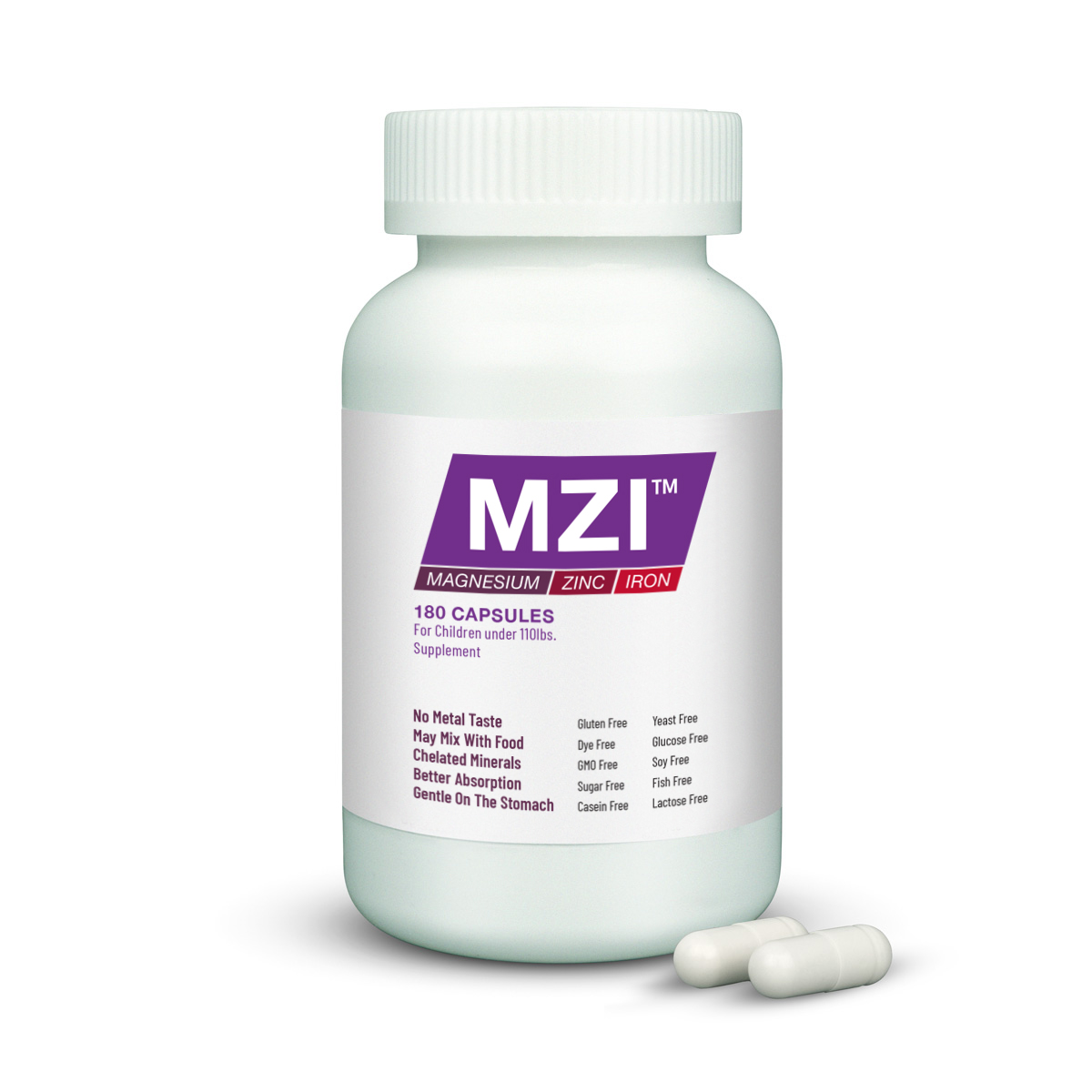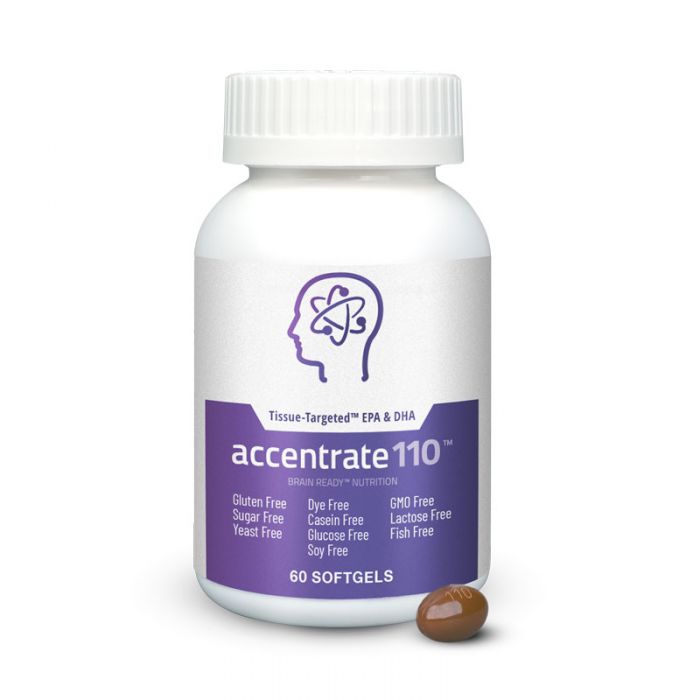Blog
We hope to support your journey improving your mental health with an increased focus on nutrition. These blog posts are not intended as medical advice, but overall general health recommendations. See your medical practitioner for any specific medical advice, needs, or concerns.
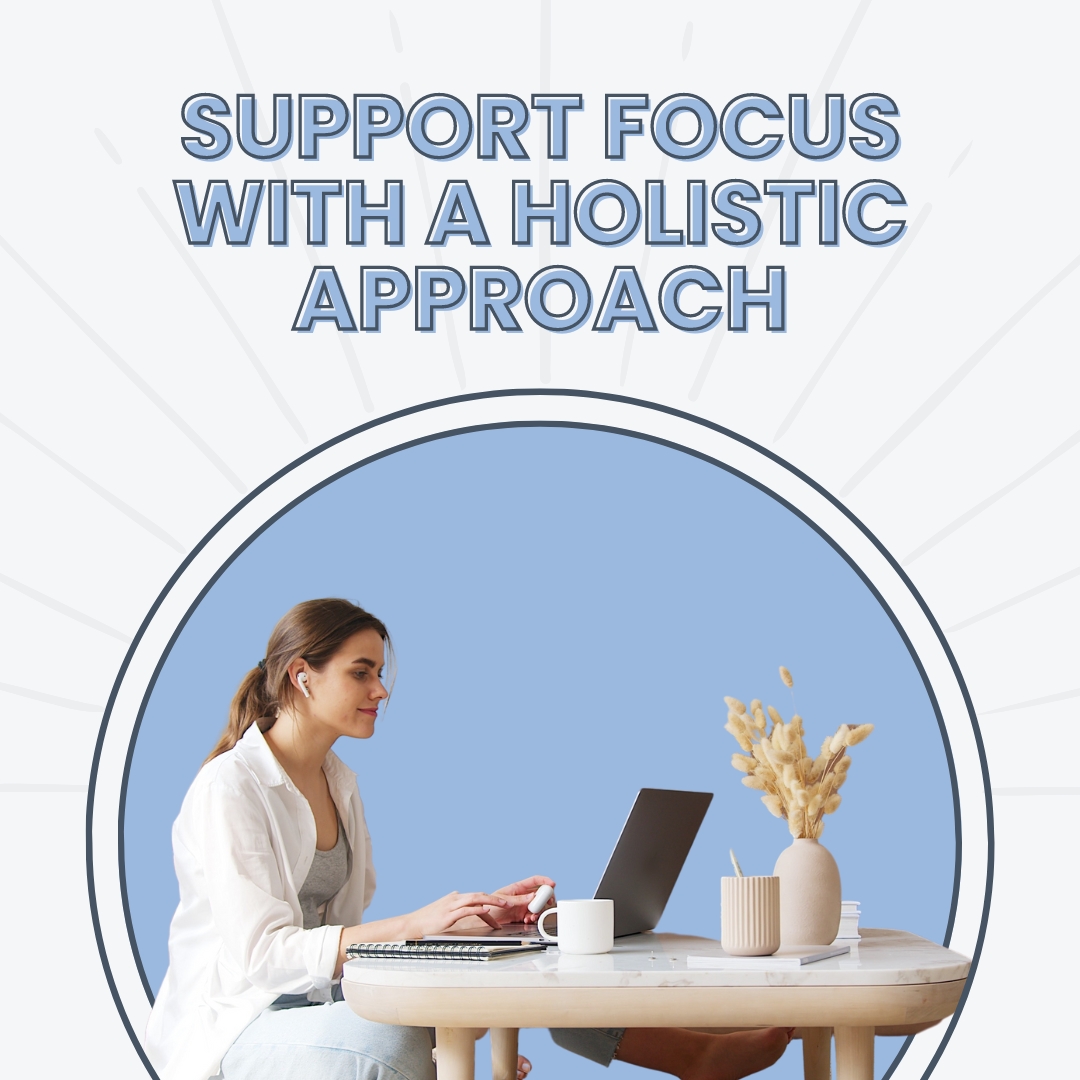
Support Focus with a Holistic Approach
"Although every mental health journey is unique, several simple practices can help you stay focused and attentive. Often, the key to concentration is a combination of these strategies for a more holistic and comprehensive approach. Let's explore a handful of ways you can promote focus for yourself and your family."
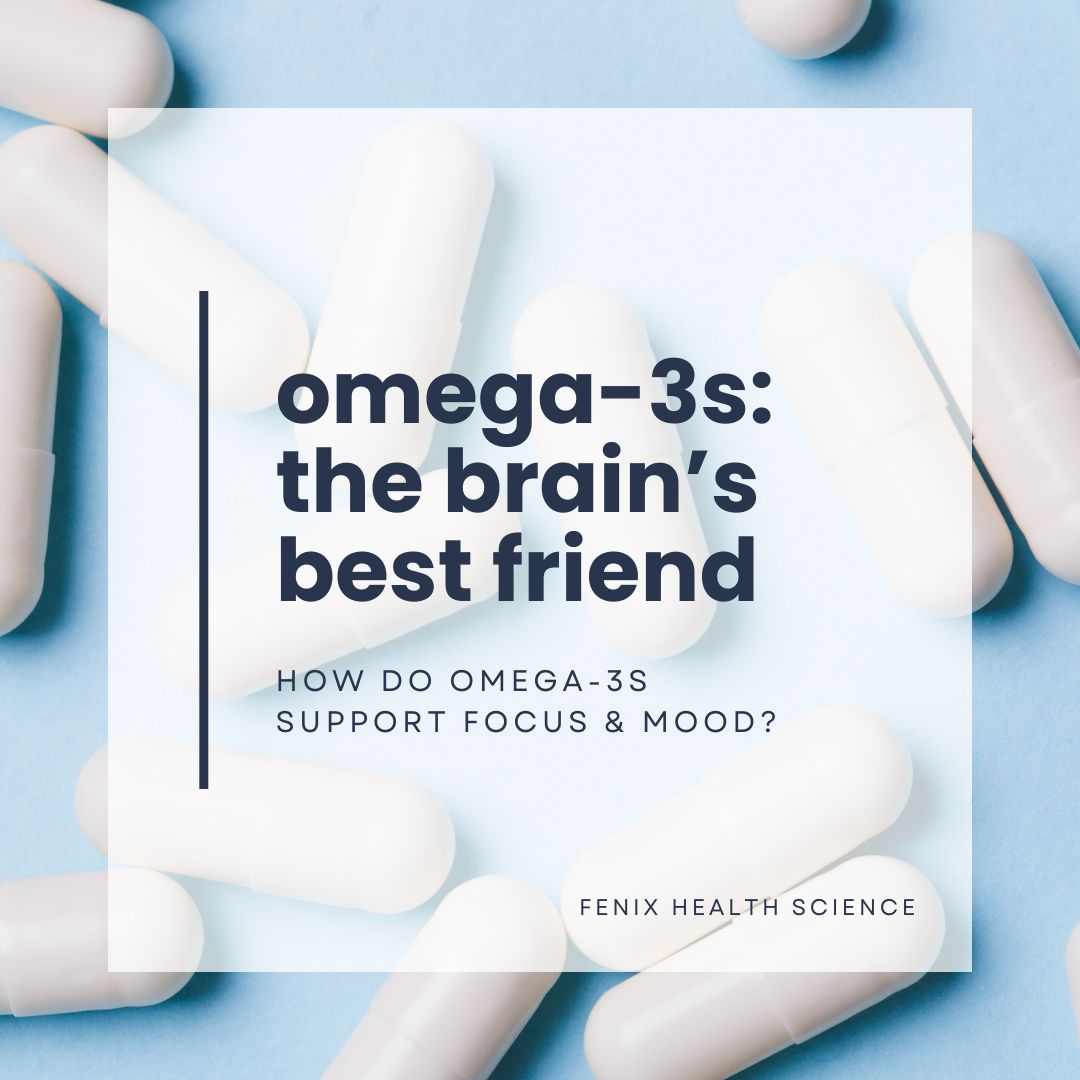
Omega-3s: The Brain's Best Friend
"Let’s explore how nutrients affect our focus and emotions! Omega-3 fatty acids, especially EPA and DHA, are our brains’ best friend and the most studied for brain health. These essential fatty acids are vital for keeping our minds sharp and emotions in check. Learning about omega-3s gives us insights into boosting our brainpower and emotional well-being and supporting mental clarity and cognitive function."
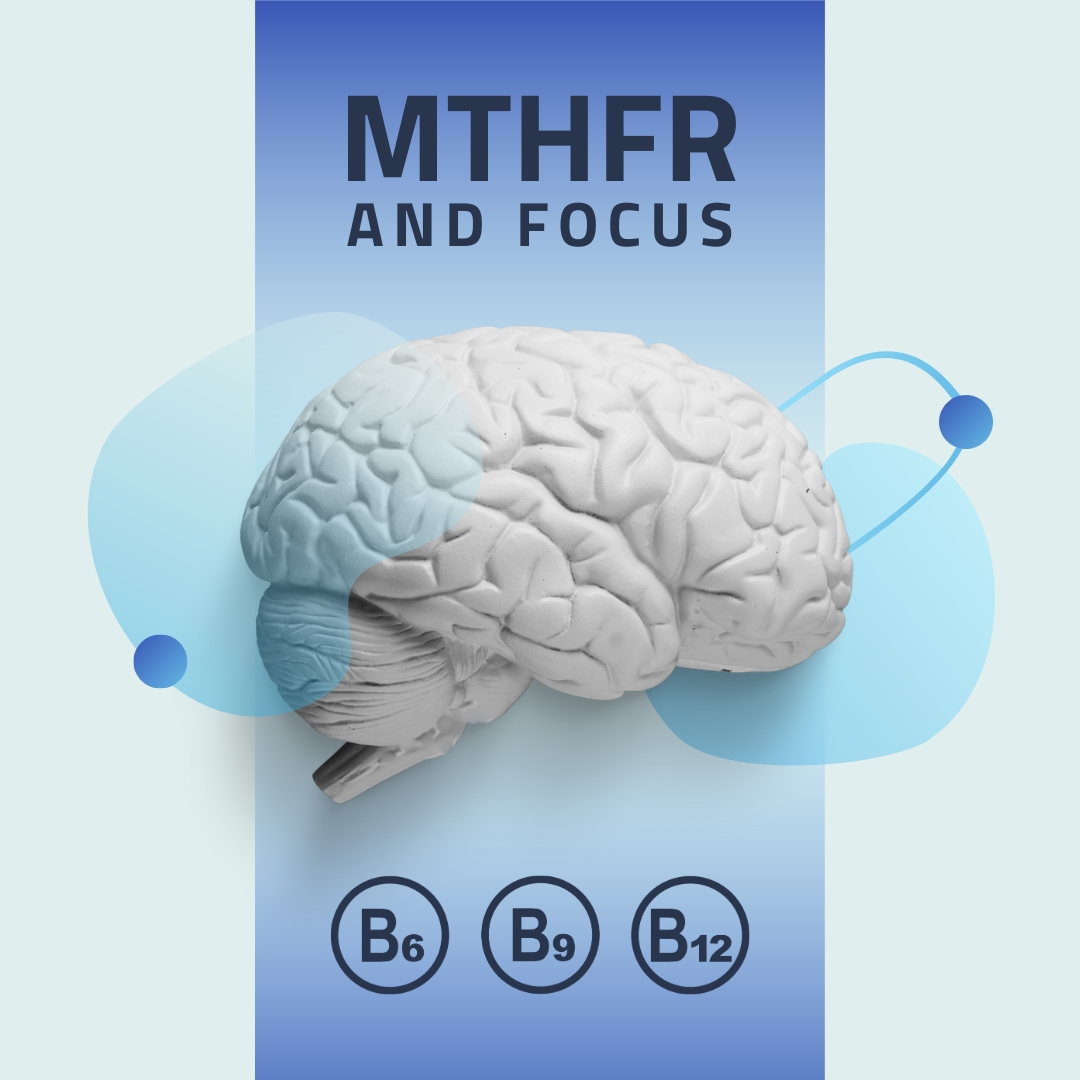
MTHFR and Focus
"You may know folate as vitamin B9, which supports focus and cognitive function. Folate has multiple forms: folic acid and the methylated form, L-methylfolate, which is the active form the body can readily use. Some individuals have MTHFR genetic mutations, which can affect the body's ability to metabolize folic acid, as conversion becomes a challenge. However, you can support normal focus and attention by supplementing directly with L-methylfolate."

Bioavailability and B Vitamins: Does It Matter?
"Simply put, bioavailability is an ingredient’s ability to be absorbed by the body and used as a nutrient. Using a bioavailable ingredient allows the nutrient to be more effective since it can be readily absorbed and utilized by the target area in the body. When discussing bioavailability, you'll also often hear about a nutrient's active form. When we eat or supplement with nutrients in their inactive forms, our bodies must activate it prior to use. "
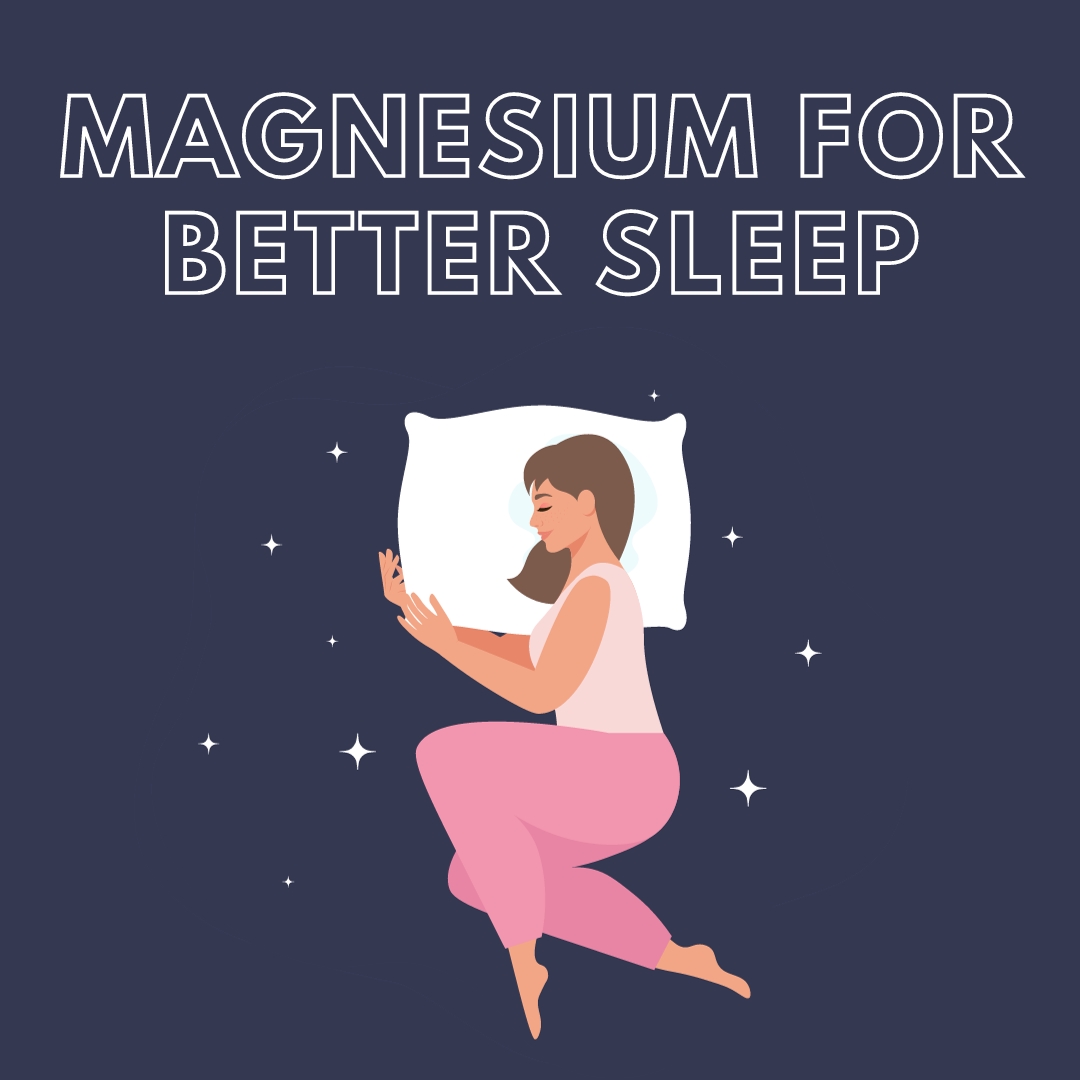
Magnesium for Better Sleep
"We also hope that you are not only sleeping but getting good rest. Many people use supplements like melatonin to help them get to sleep and/or stay asleep, but melatonin isn’t the only supplement that can help. Magnesium has been shown to improve insomnia, sleep efficiency, sleep time, sleep onset latency, and early morning awakening."
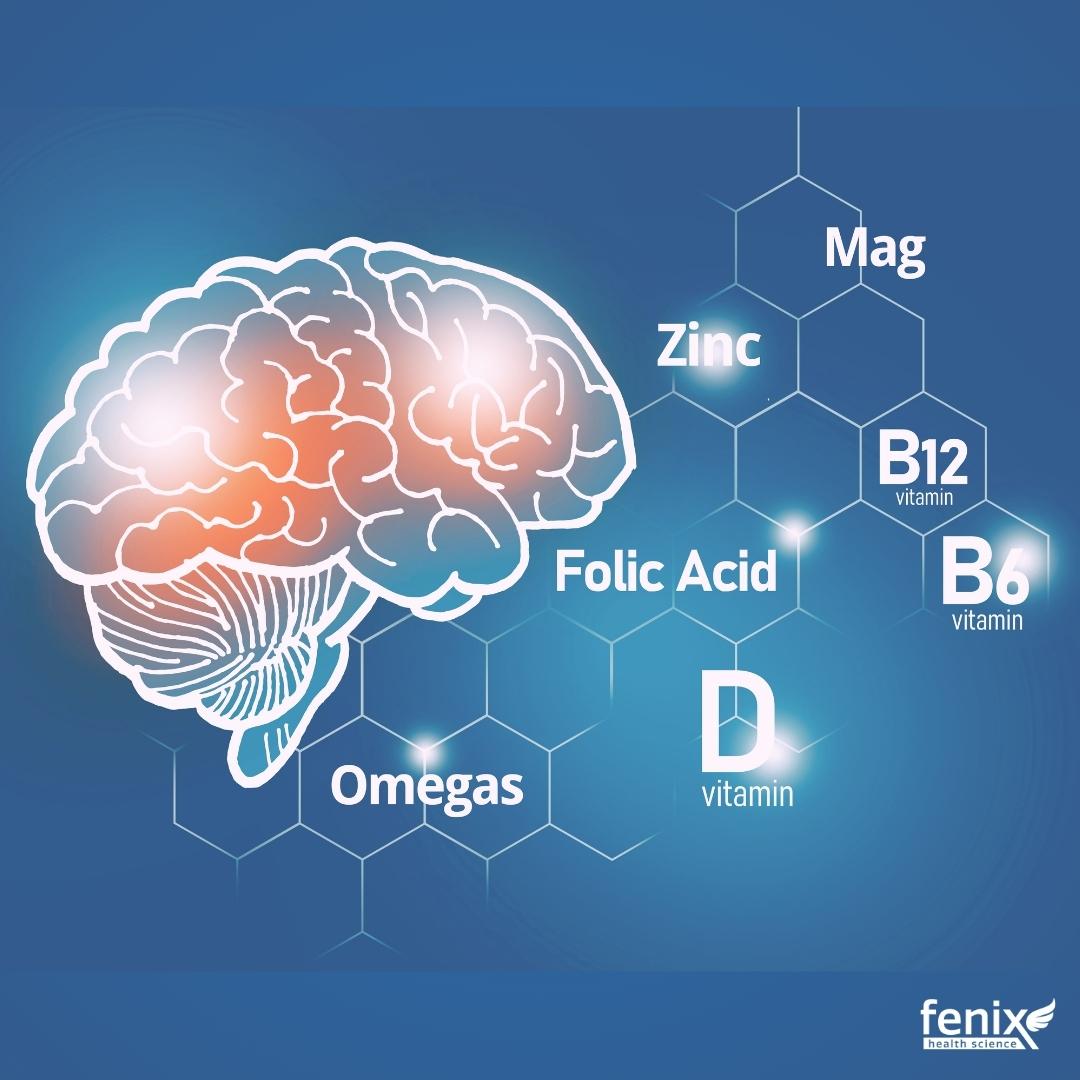
Which Supplements Support Mental Health?
"As Julia Rucklidge says in her TED Talk, “Nutrition matters. And if we’re really ready to get serious about mental health, we need to get serious about the critical role played by nutrition.” Individual nutrients have been the focus of many studies attempting to determine the role that they may play in normal brain function and mental health. Let’s look at each to discover just how they support mental well-being."
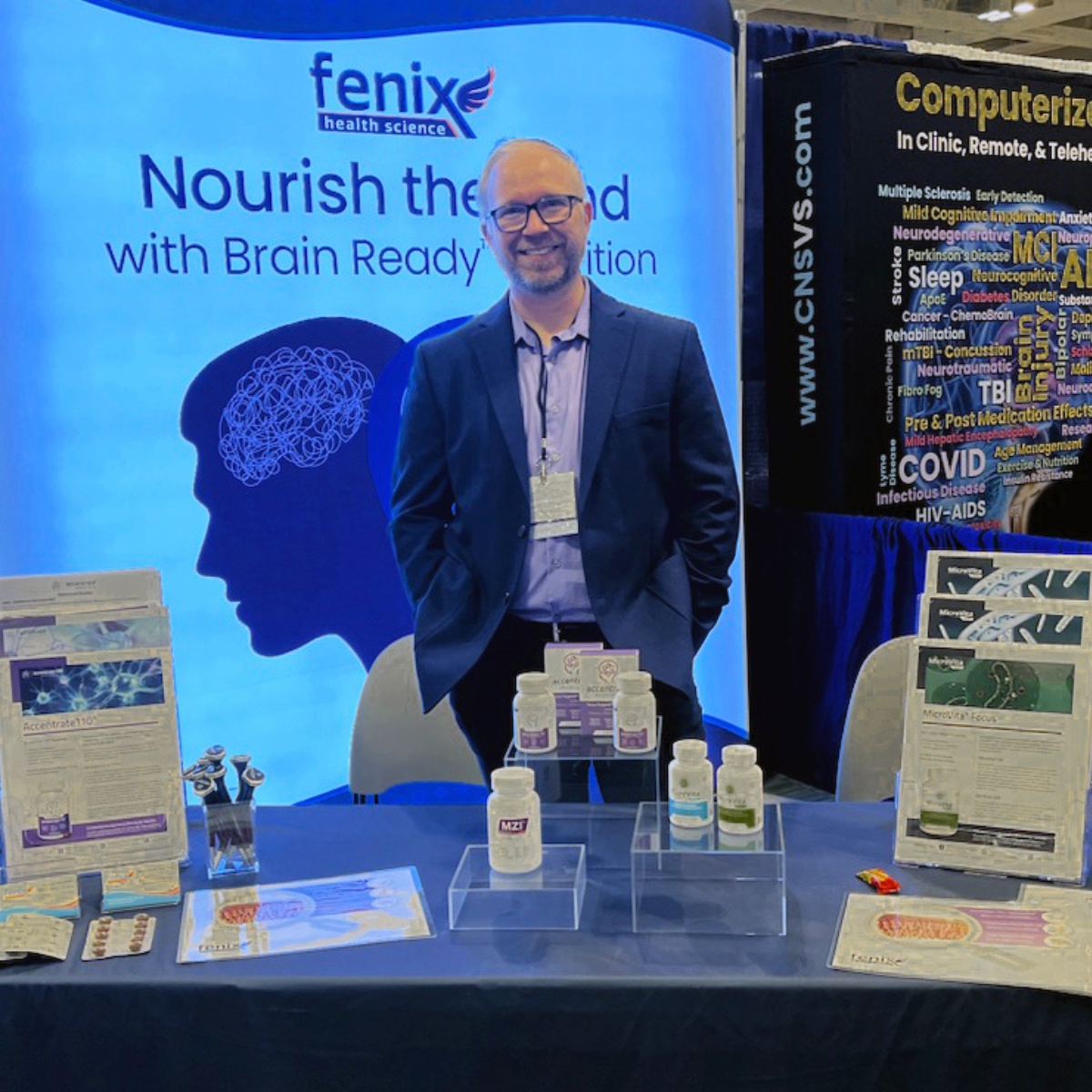
Brett's Story: Quality Ingredients Matter
"When my son was in first grade, it became clear he needed additional support for his cognitive and emotional well-being. This pushed us to research further into the role nutrition plays in mental health. Finding the right combination of supplements was hard and getting him to consistently take many different supplements was even more challenging. I thought other parents may also have this struggle, which lead to the creation of Accentrate® for my son."
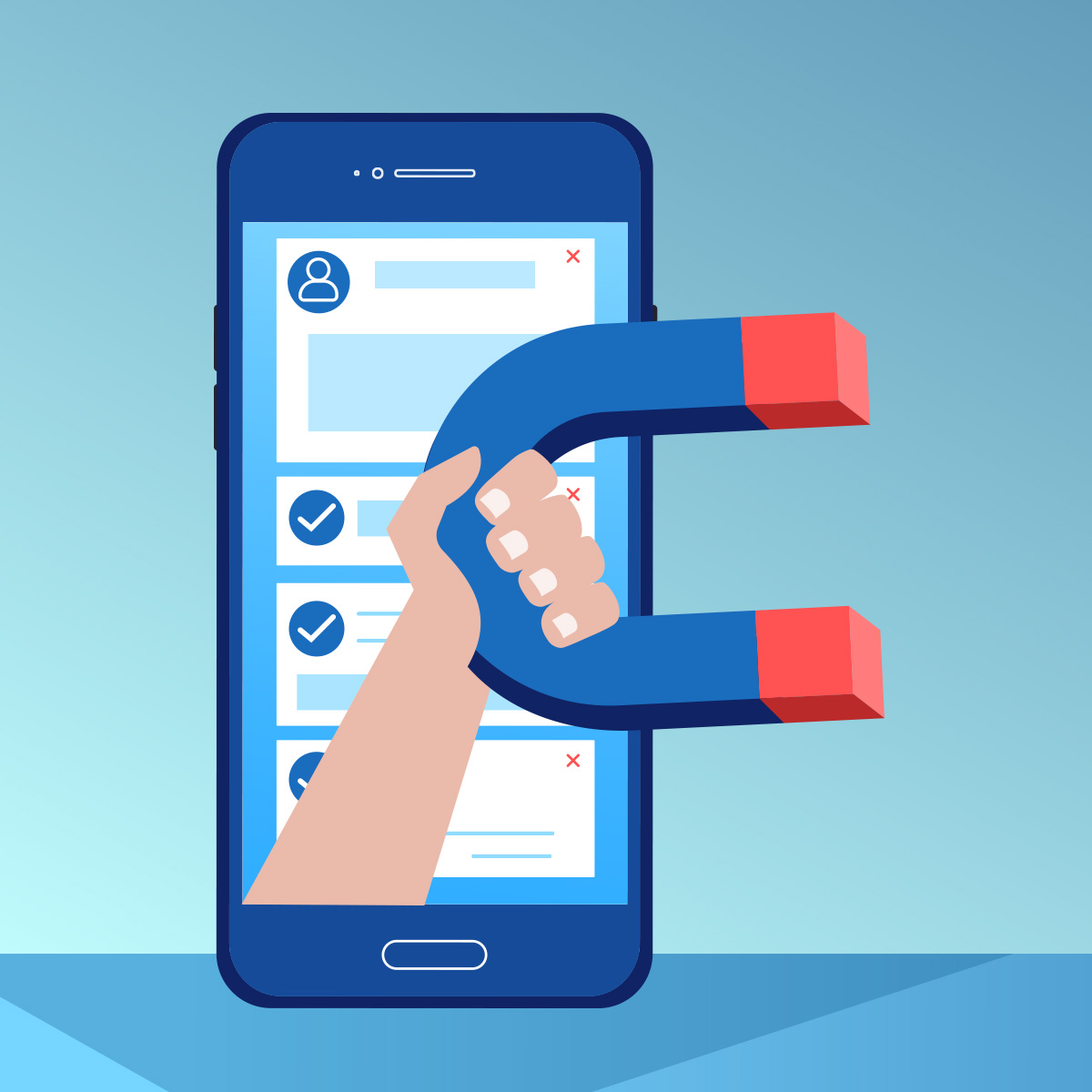
Social Media's Effect on Teens
"We have all become more captivated by our phones and social media, and it can be exhilarating to see the reactions and comments roll in. While social media is a great tool for communication, learning, and entertainment, we’ve become so attached that it can easily reach an unhealthy level."
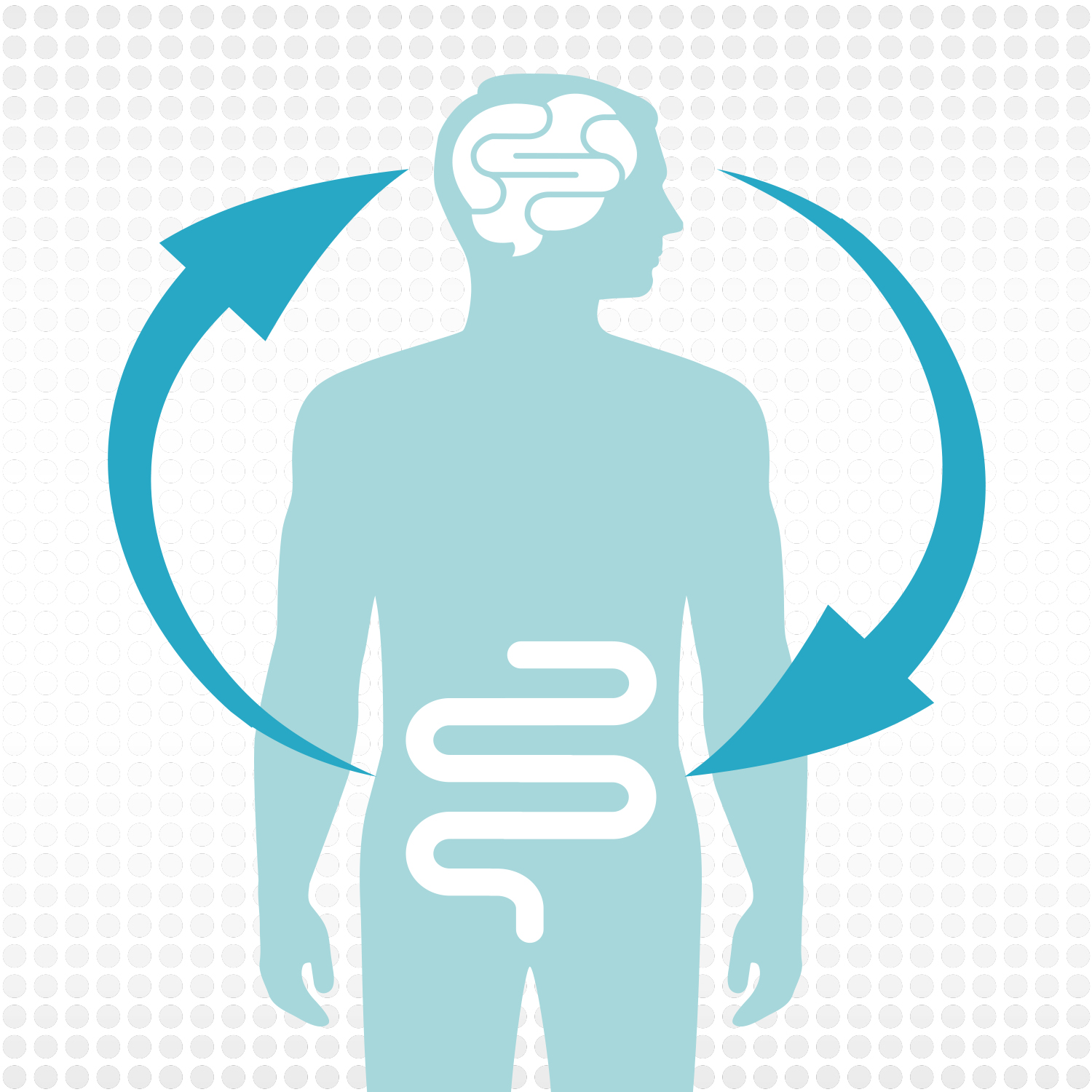
What's the difference between MicroVita® and Neuralli?
"When searching for a probiotic that contains PS128™, you’ll run across both MicroVita® Focus by Fenix Health Science and Neuralli by Bened Life, but how do you know which is the right option for you? The main difference is Neuralli only contains PS128™, while MicroVita® aims to support the gut-brain axis by encouraging microbiome diversity with additional probiotic strains."
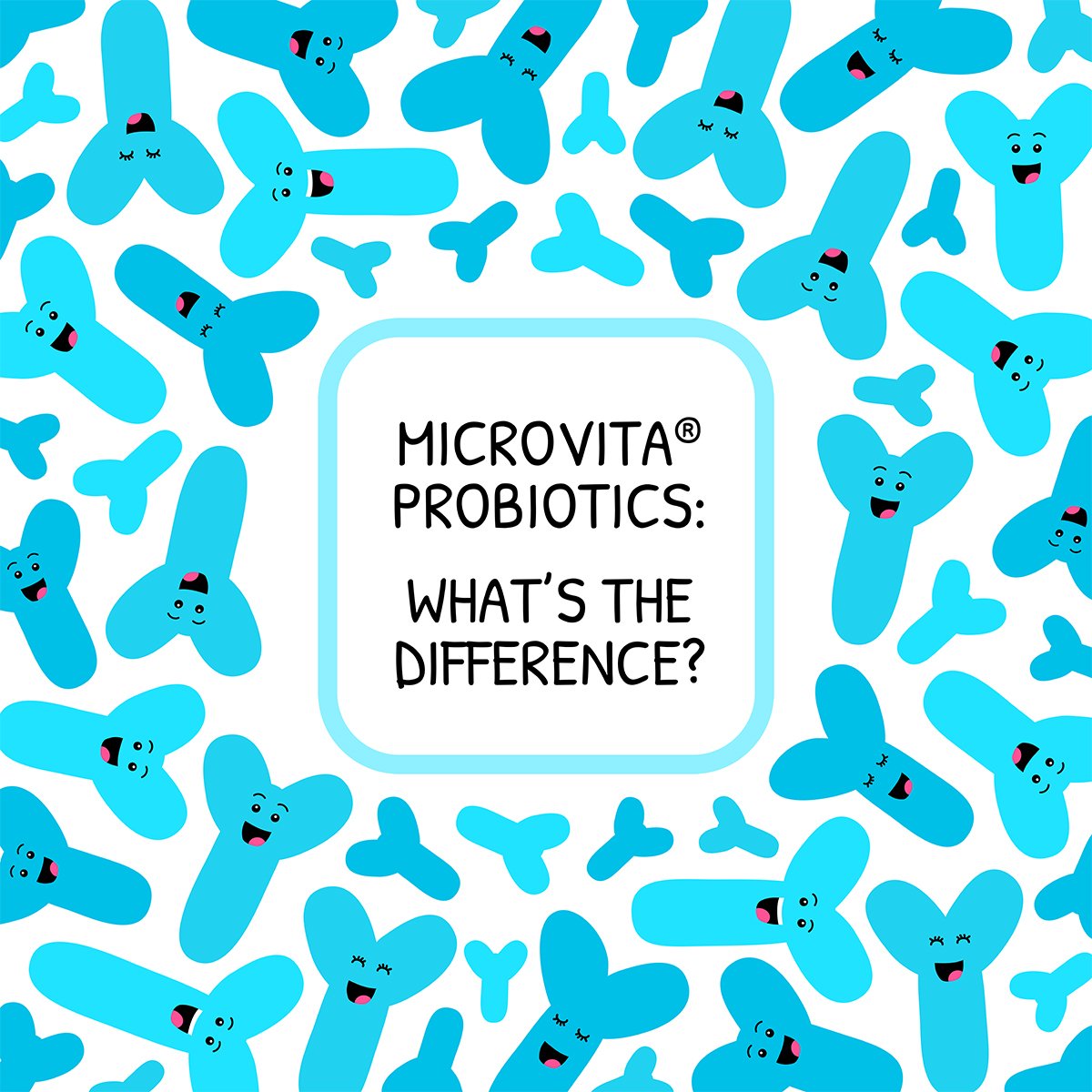
What Should I Look for in a Probiotic?
"Are probiotics just the latest health fad? With so many probiotics on the market it seems that would be the case, but there’s actually a substantial amount of scientific support emerging that they do provide health benefits. But are all probiotics the same? It can be challenging to determine which is the right product for your specific health goals."
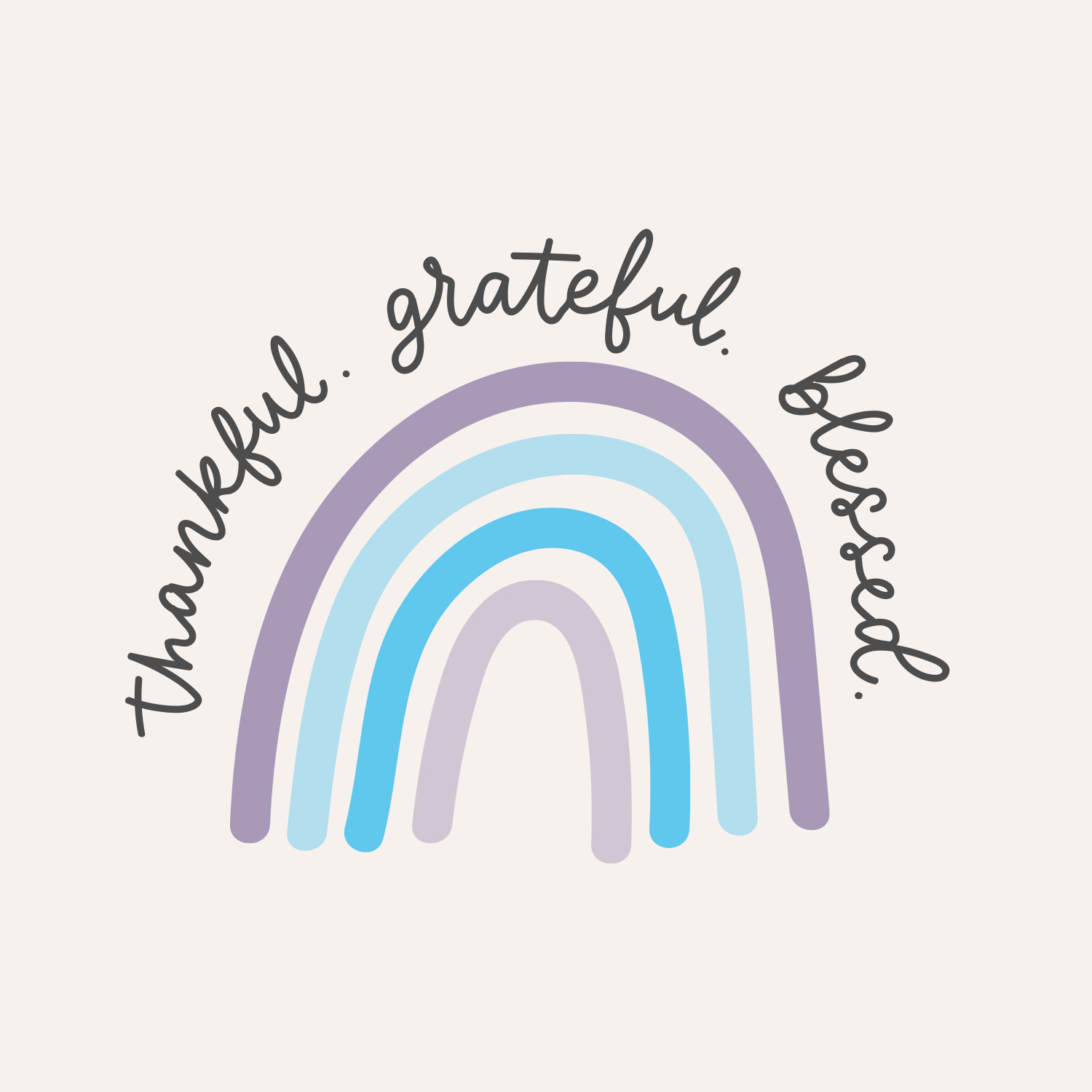
Gratitude: A Simple Way to Help Mental Health
"As we approach the end of the year, many of us use this time to reflect and be grateful for our loved ones and the blessings in our lives. But did you know that gratitude can actually help your brain? Gratitude has a big impact on mental health as it releases serotonin and dopamine the brain craves."
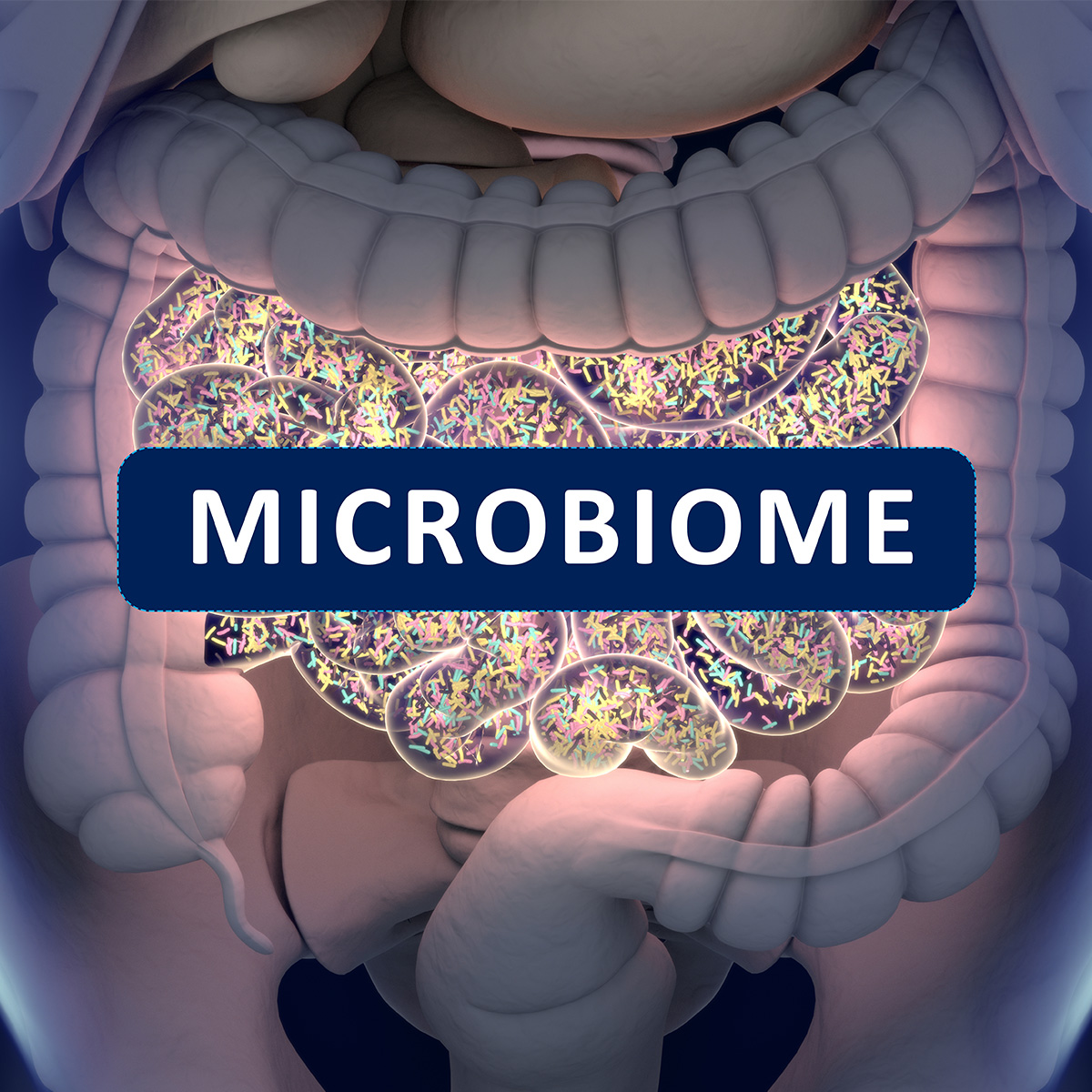
Increasing Microbiome Diversity with MicroVita® Probiotics
"Many expensive probiotics will provide ten, twelve, or even thirty-four probiotic strains in one product. Though all the strains may have healthy benefits, the problem with taking too many strains at the same time is that they will be competing against each other for colonization in the gut…and then few or none actually do."

MicroVita® Probiotics are Now Available!
"In the last decade, more and more scientific research shows the importance of gut health and its relation to mental health. Fenix Health Science has partnered with Jennifer Giustra-Kozek, LPC, HpN, RMT and the author of Healing Without Hurting in formulating our new probiotics, MicroVita® Focus and MicroVita® Mood."
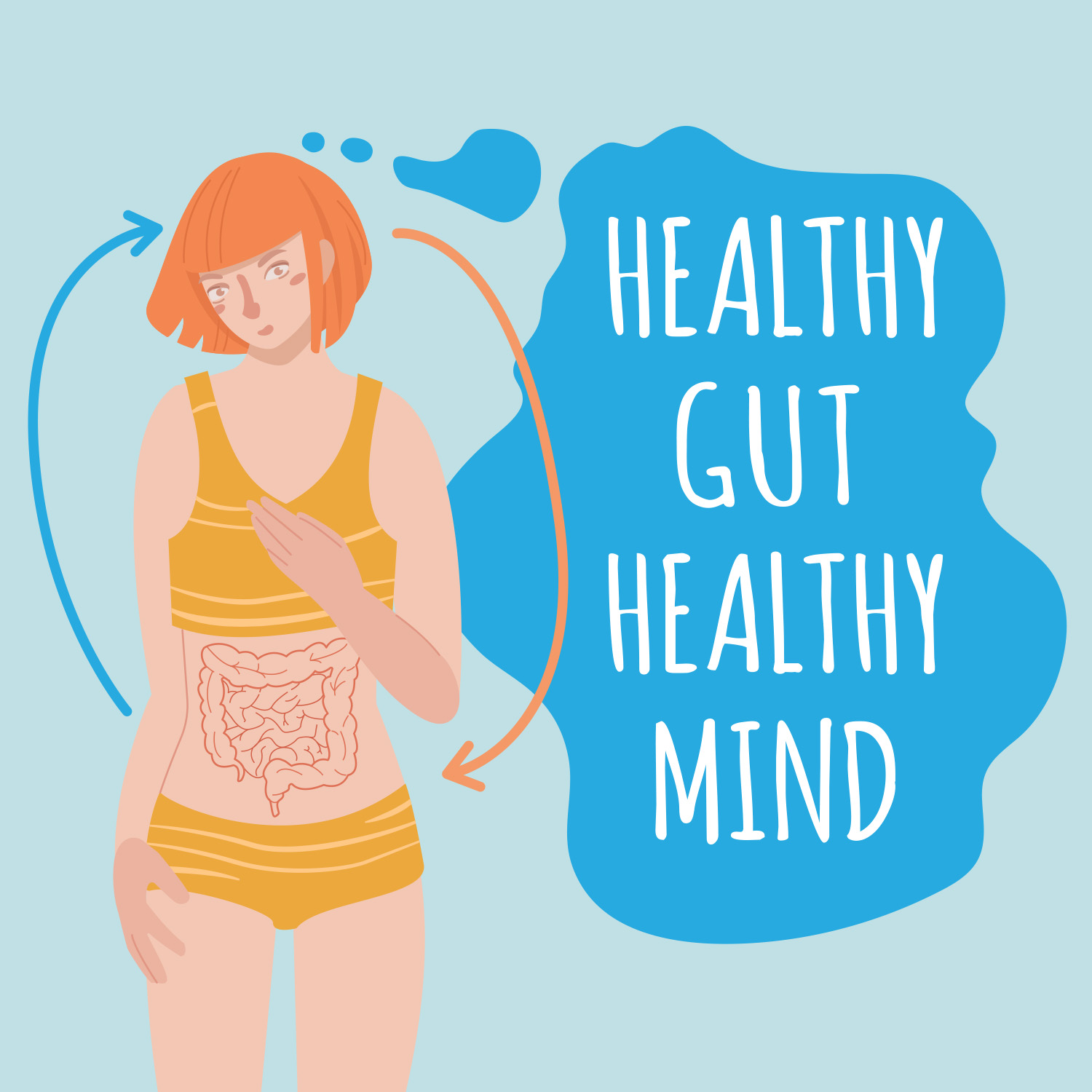
Probiotics and the Gut-Brain Connection
"The gut-brain axis is simply your gut and brain communicating back and forth through the enteric nervous system. Because of this communication, the billions of microorganisms that inhabit the digestive tract, called the gut microbiota, can influence various normal mental processes and phenomena and is involved with mental and neurological health."

Nutritional Supplements on Summer Break
"Nutritional supplementation is more like having a healthy diet to accompany exercise for the physical body’s health. If you have a healthy diet and have an exercise regimen, your body becomes healthier. If you stop working out or if you go back to unhealthy eating habits, you won’t immediately lose everything you’ve gained, but it will take longer to get back to where you were when you resume healthy eating."

Accentrate® Gummy is Now Available!
"The long-awaited Accentrate® Gummy has arrived! Since the launch of Accentrate® in 2017, parents have been asking for a gummy option for kids that struggle with swallowing pills. This gummy has been in the works for years, and we are so excited for you to try it!"

Don't Love the Taste? Try This!
"Supplements are like vegetables—they’re great for you, but they’re not always the best tasting. Just like we may add cheese to broccoli to encourage kids…or let’s be honest, us adults…to eat it, there are some easy tricks to taking supplements as well."
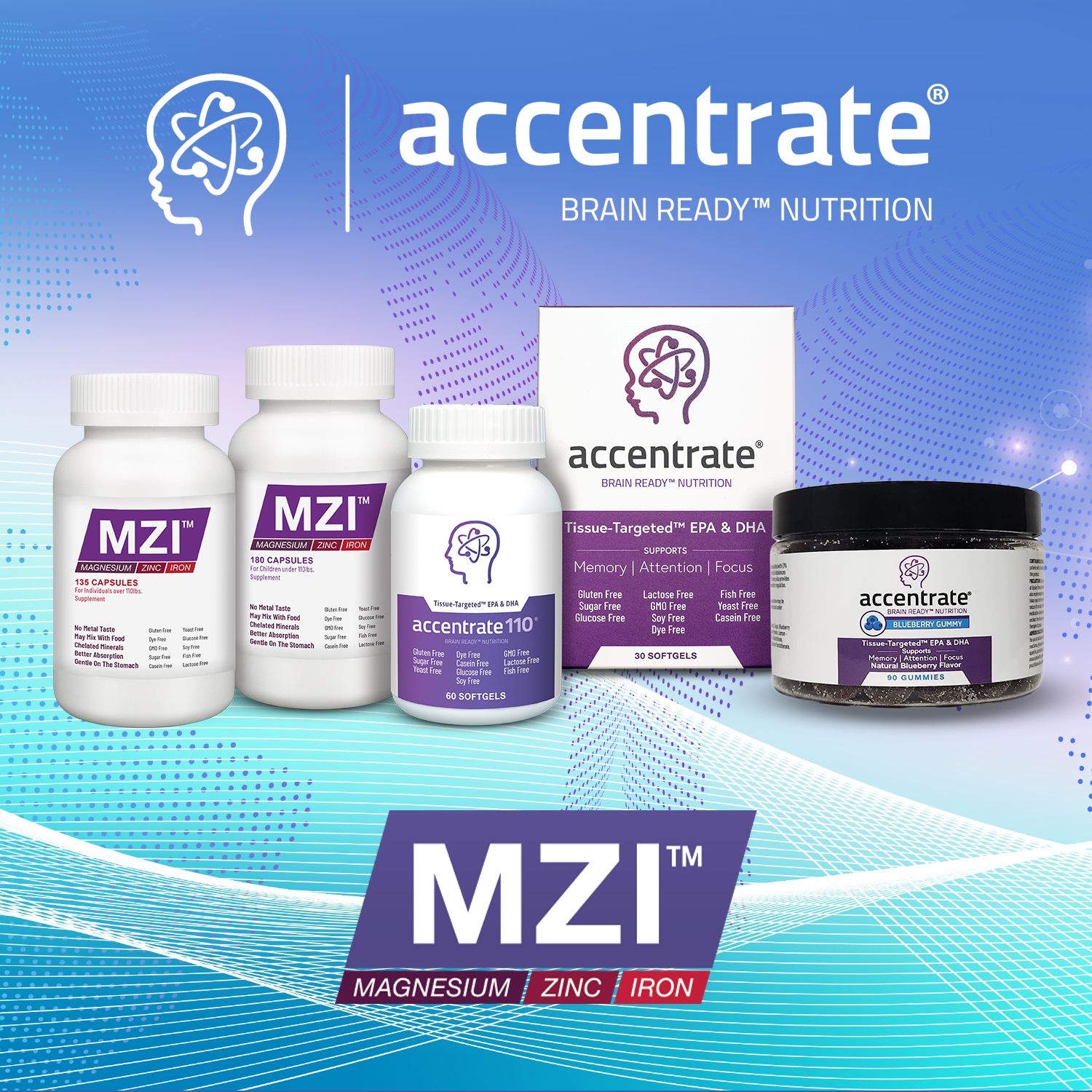
Which Product is Right for Me?
"If you are wondering which product is right for you or a family member, you have come to the right place! This guide will help you discover which product is the best fit for your specific needs. Let's get started!"
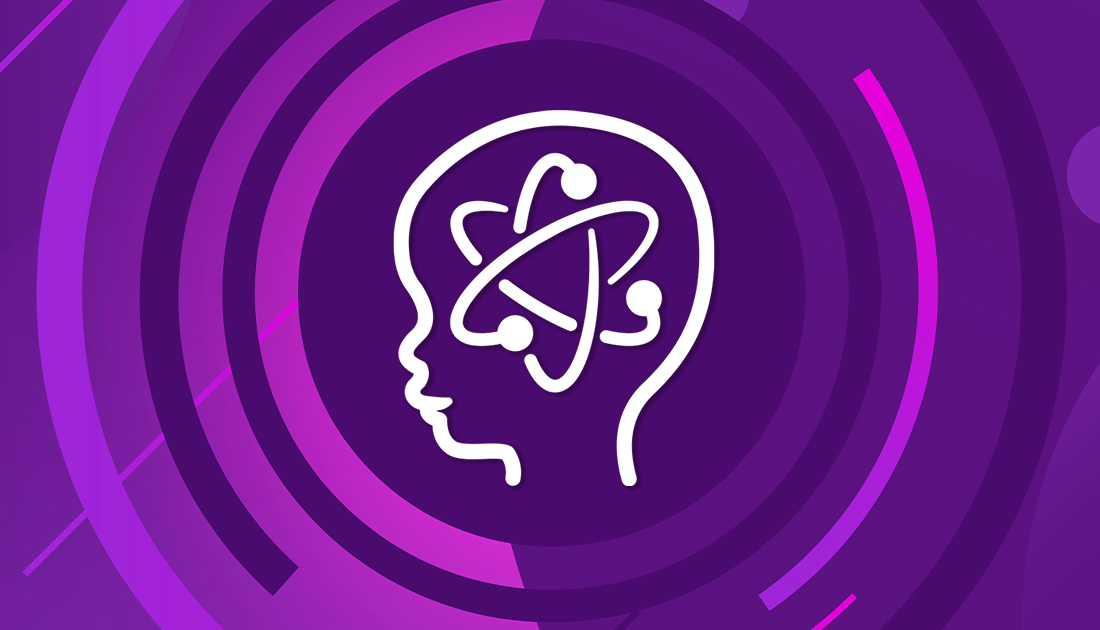
How does Accentrate® compare to Equazen® Pro?
“How is Accentrate® different from Equazen® Pro? Accentrate® has been formulated with EPA and DHA in phospholipid form. Equazen® Pro provides EPA and DHA in triglyceride form from fish oil.”
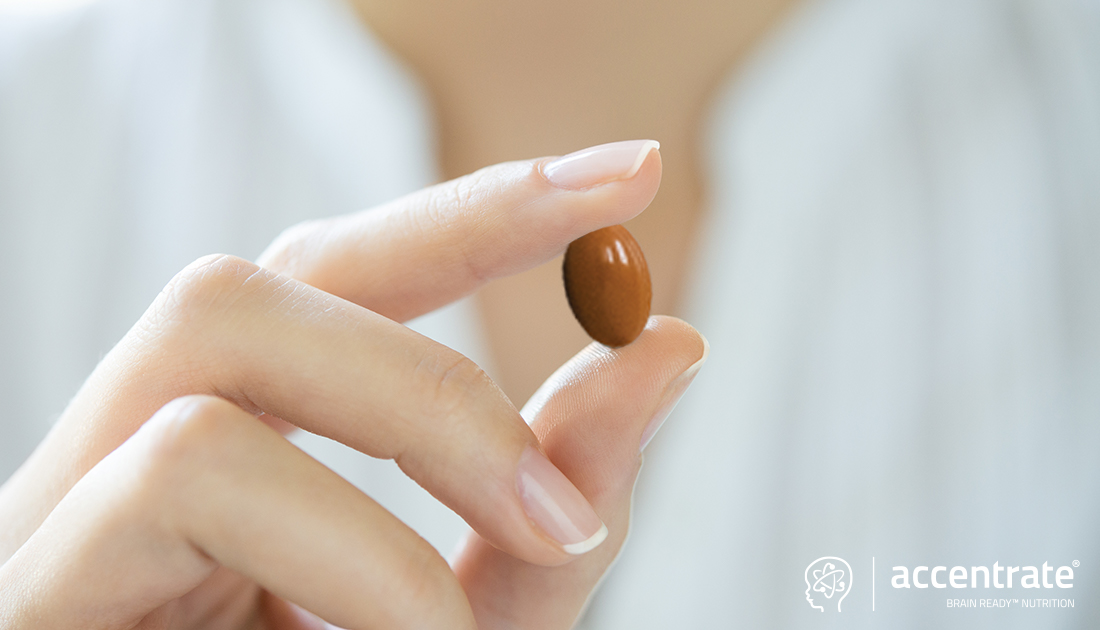
Clinically-Proven Ingredients
“All of our products are formulated based on the scientific literature that shows which nutrients provide the most support for healthy mood, attention, focus, and emotional balance. There is scientific support for the inclusion of every ingredient each in Accentrate®, MZI™ and MicroVita® product.”
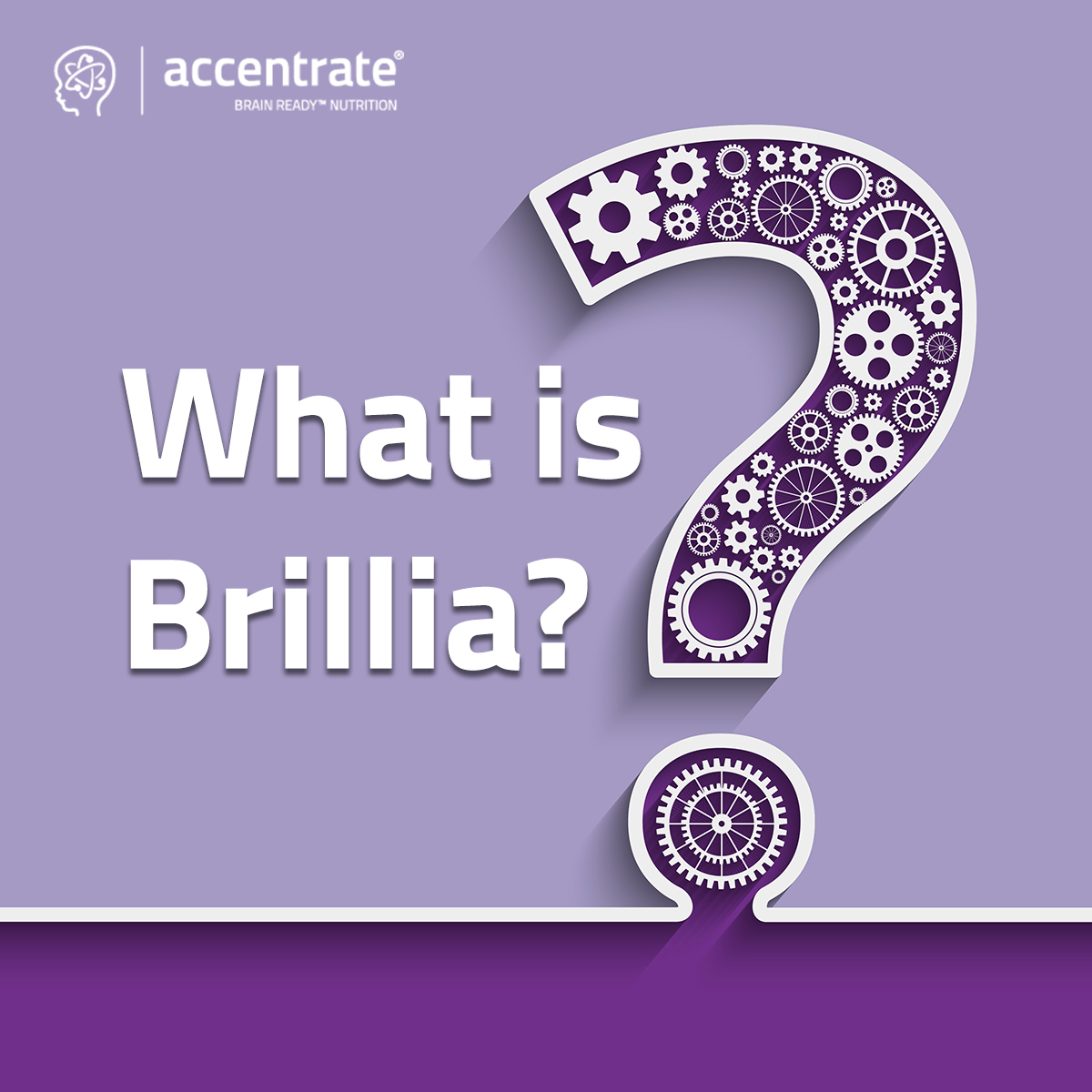
What is Brillia?
Brillia is a homeopathic supplement with claims to alleviate anxiety and hyperactivity and improve focus and attention. It is marketed as a holistic treatment, and the manufacturer promotes guidelines for proper nutrition, adequate sleep, mindfulness, and controlled screen time along with use of their supplement.
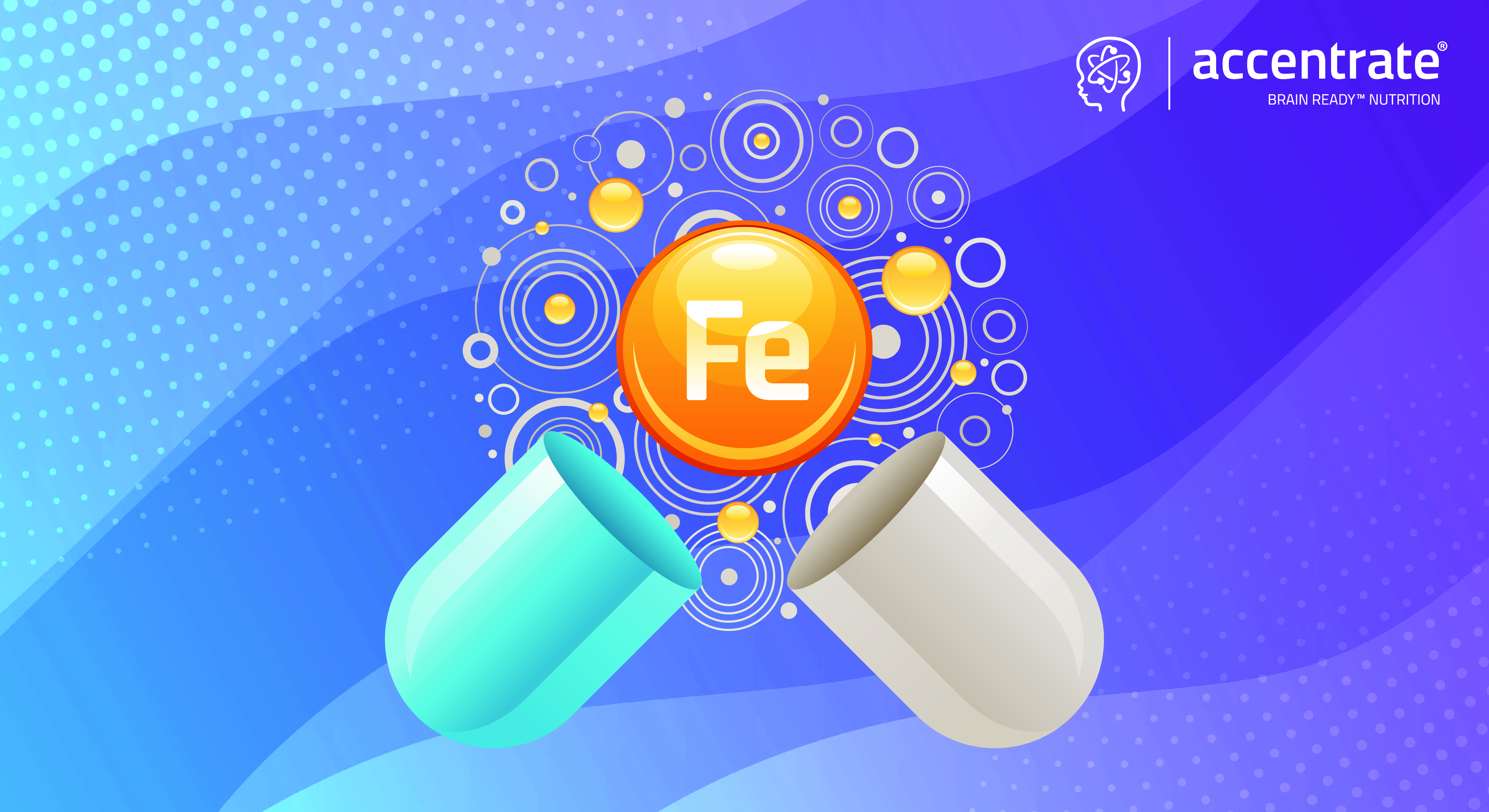
Iron Supplementation
What happens when the brain is deprived of iron? A study showed that children with an iron deficiency struggle with attention and emotional well-being. A low amount of iron is not good for brain health. Iron is important in its role in hemoglobin in the blood and transporting oxygen to the neuron.
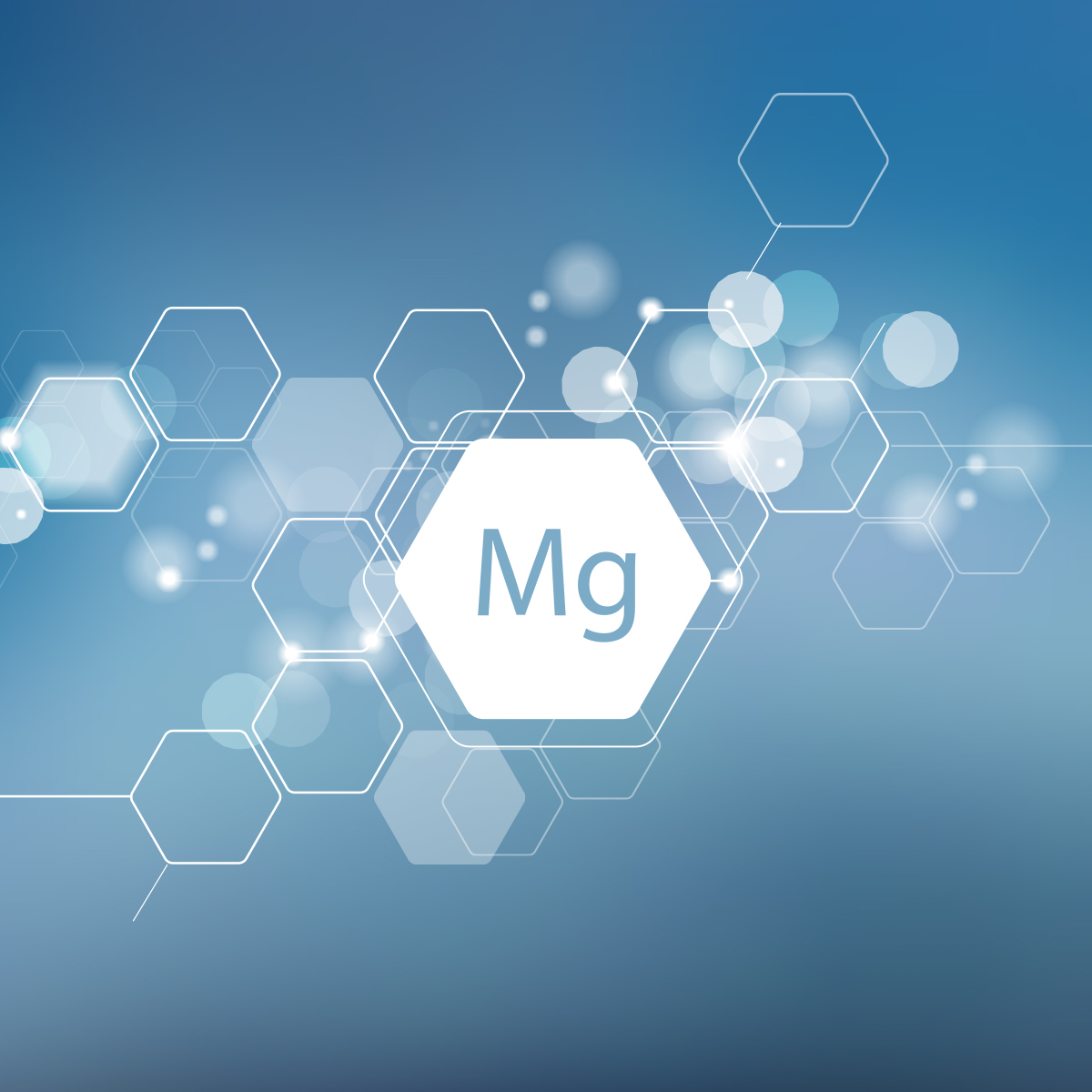
Magnesium Supplementation
What happens when the brain is deprived of magnesium? Magnesium is an important mineral that plays a role in hundreds of enzymes. It is essential to initiate hundreds of cellular activities and is required for ATP, which is what provides energy to the cell. More importantly, magnesium plays an important role in supporting normal brain health.
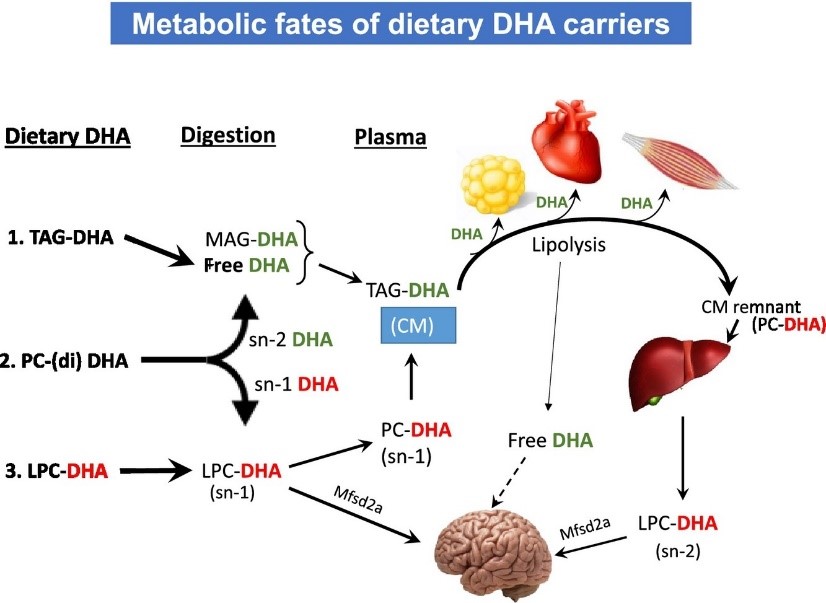
Phospholipids—The Preferred Carrier to the Brain
Why is Accentrate® Brain Ready™ nutrition? Why do we say we have Tissue-Targeted® EPA and DHA? Accentrate® has been formulated with EPA and DHA in phospholipid form, which is the preferred carried to the brain.
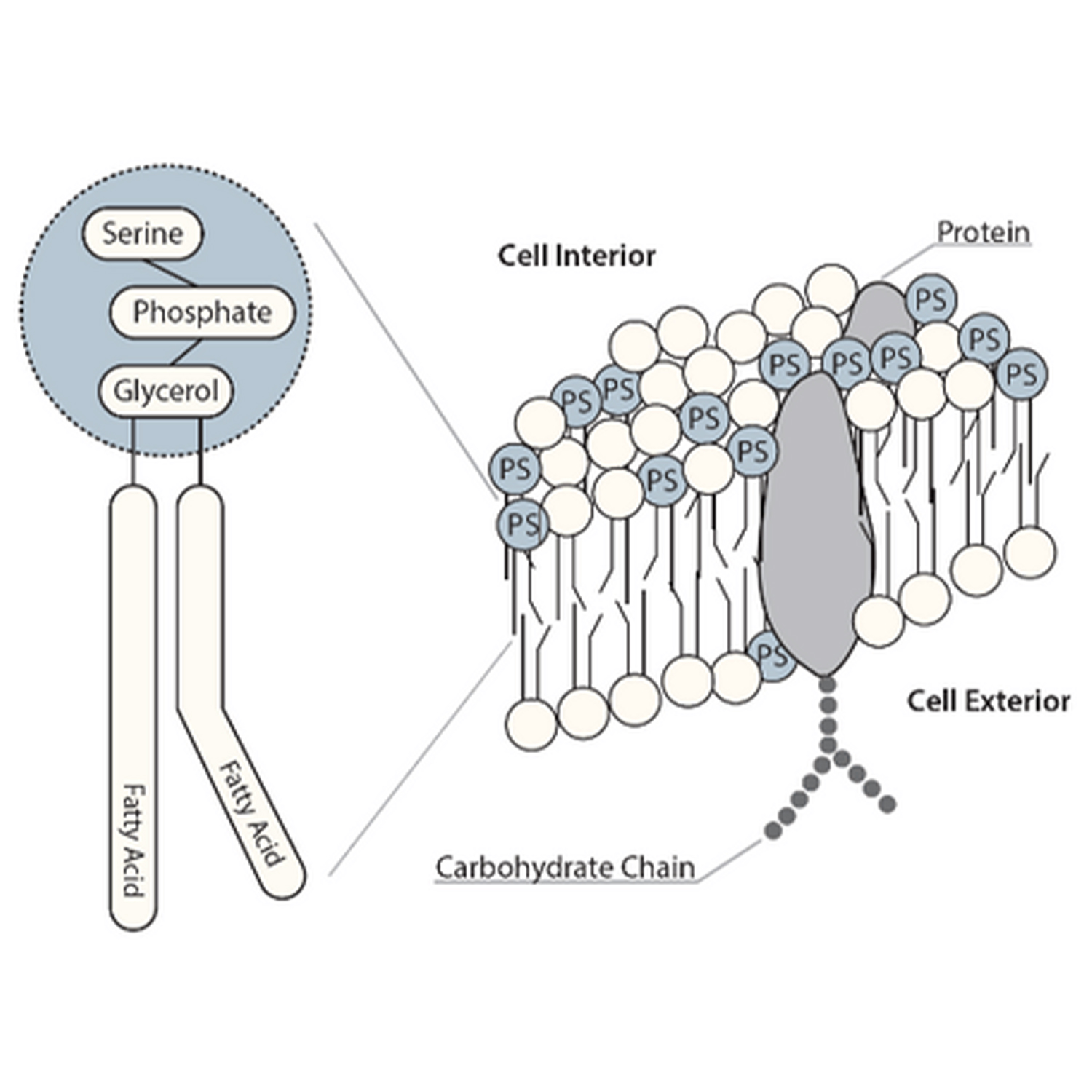
Phosphatidylserine from Vegetable Sources Doesn’t Work
It turns out that the benefits from PS from bovine cortex was really the DHA provided in phospholipid form, which is the preferred carrier to the brain. Once the omega-3 fatty acids are in the brain, the brain can change the phosphate heads to make PS.
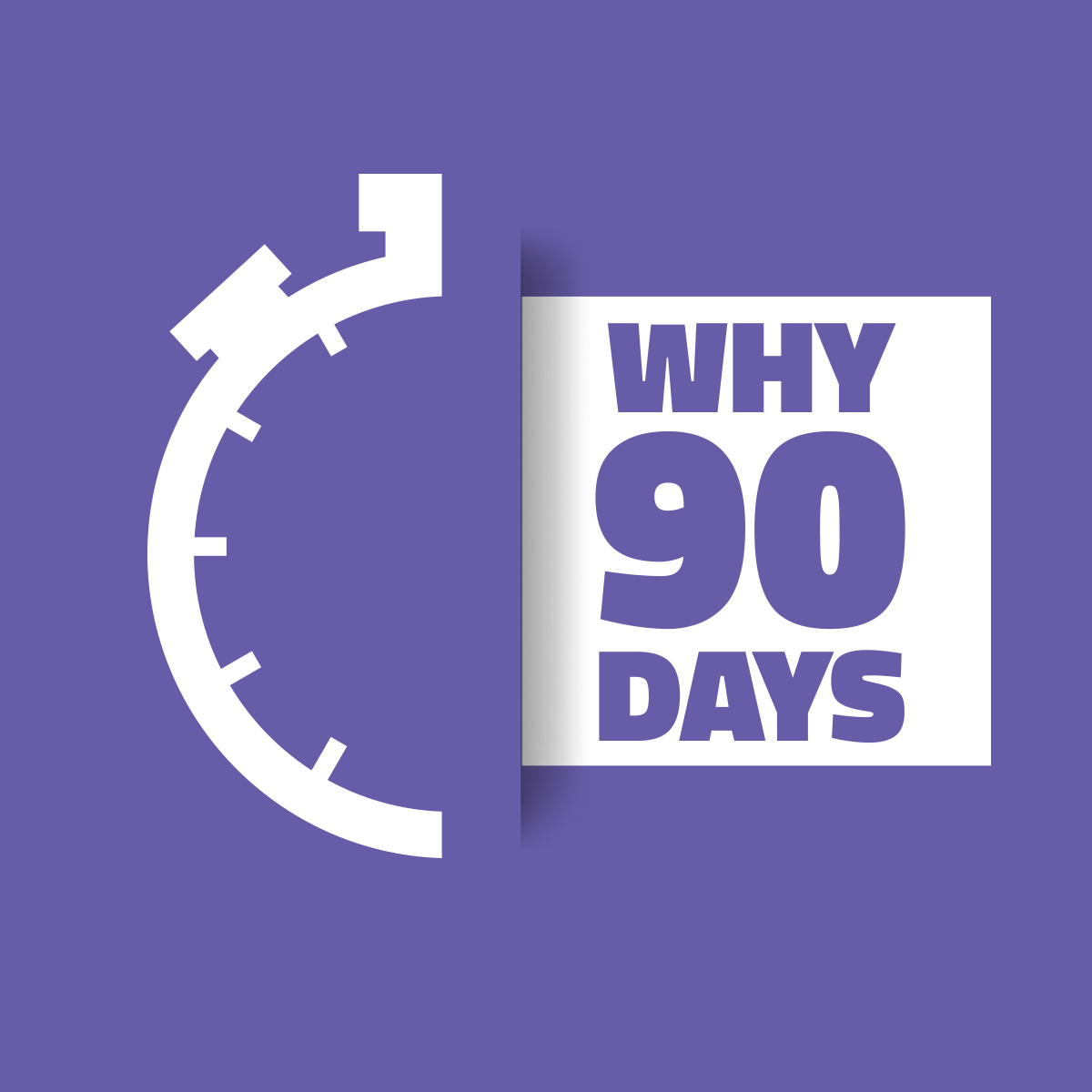
Why Give Accentrate® 90 Days
For Accentrate®, people always ask us why we suggest a 90-day supply in order to confirm you are getting the best results from using the product. The truth is that Mother Nature takes her sweet time.
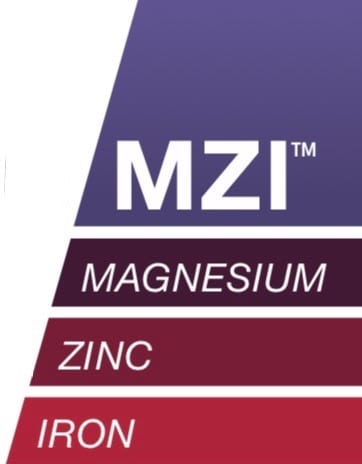
MZI™ Now Available
We are excited to announce MZI® is now available! MZI® contains 110 mg of magnesium, 30 mg of zinc, and 10 mg of iron for children and 220 mg of magnesium, 60 mg of zinc, and 20 mg of iron for adults.
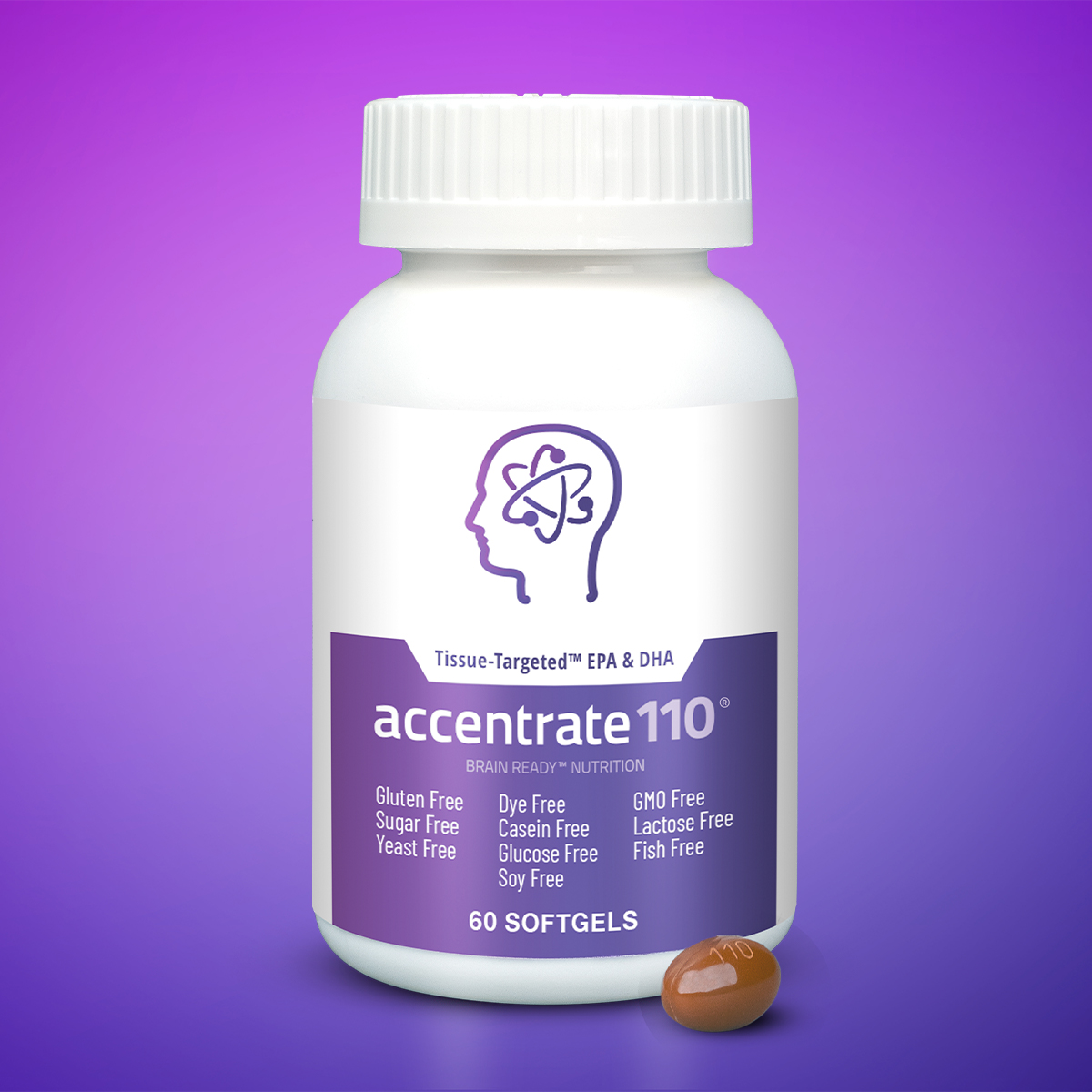
Accentrate110® Reform Now Available
We are also excited to announce that we have reformulated Accentrate110™ to provide even more nutrition to the brain.

Accentrate110® is NOW Available!
Almost immediately after launching Accentrate® for children, we were shocked by all the requests for an adult/teen version! We listened and developed Accentrate110® for individuals weighing more than 110 pounds.
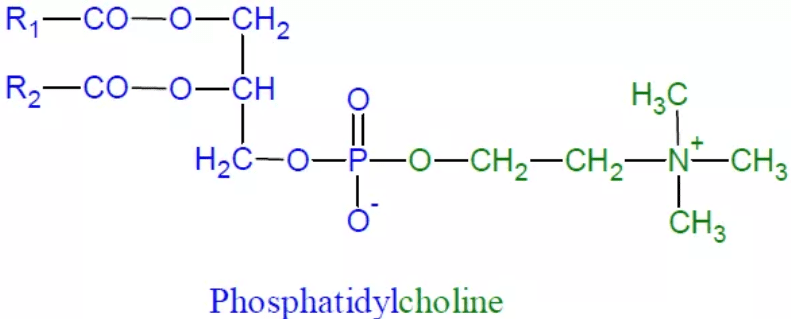
Tissue-Targeted® EPA and DHA
Accentrate® provides EPA and DHA that is conjugated to a phospholipid (PL) just like Vayarin. But instead of phosphatidylserine (PS), Accentrate® contains EPA and DHA that is conjugated to phosphatidylcholine (PC).
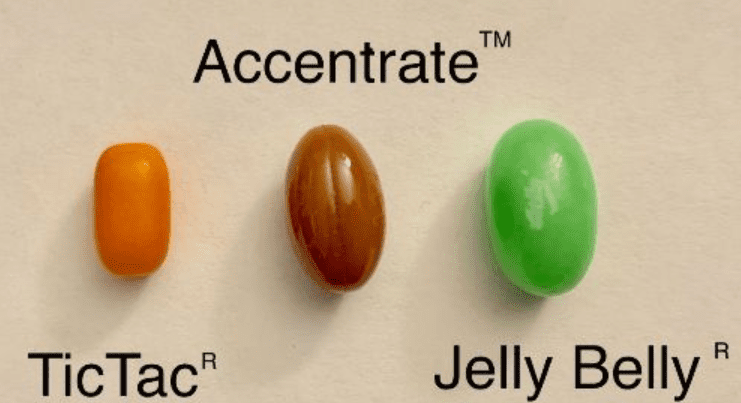
Accentrate vs. Cooper Complete® Advanced Omega-3 (CCAO3)
Other companies are trying to market themselves as alternatives to Vayarin. One such company is Cooper Complete Nutritional Supplements.
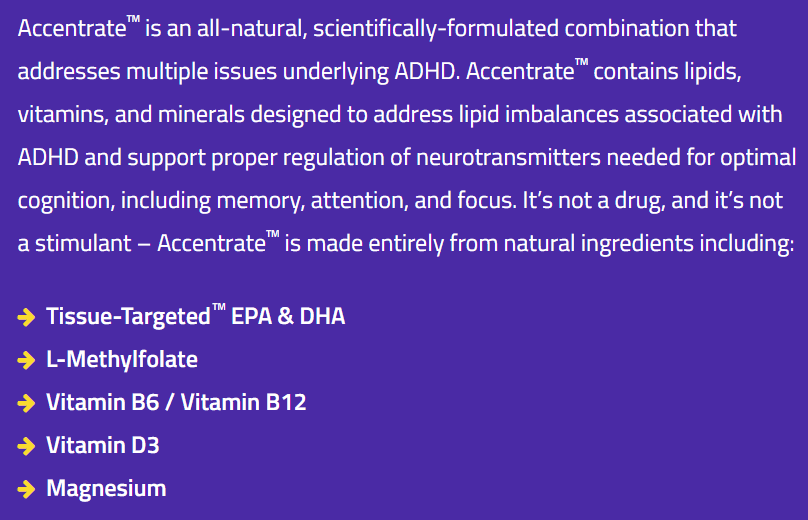
EPA and DHA from fish oil and alternative sources of Phosphatidylserine (PS) and is NOT an alternative to Vayarin
Social media was lit up the weekend Vayarin was discountinued. Parents and medical practitioners frantically looked for alternatives...check out Accentrate®.
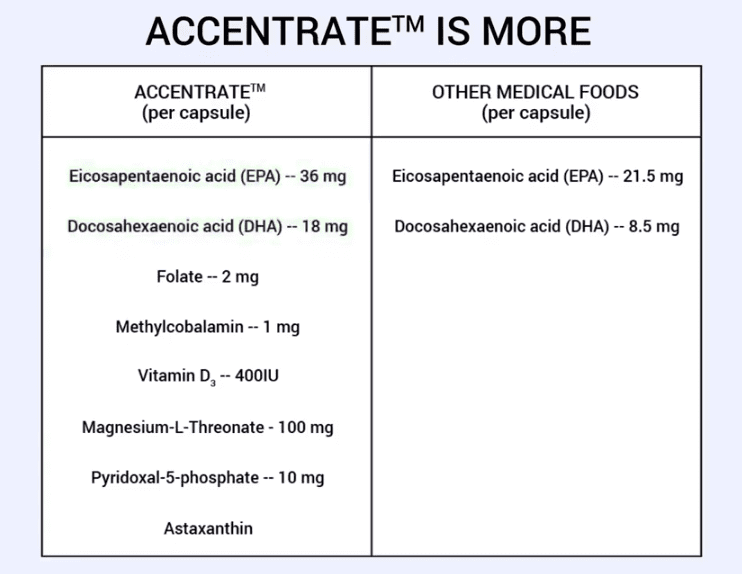
Accentrate®: Vayarin Alternative
It has come to our attention that Enzomotec/Vaya Pharma will no longer sell Vayarin and related products. We know that puts many parents in distress since their children with omega-3 deficiencies have been improving while on their products.
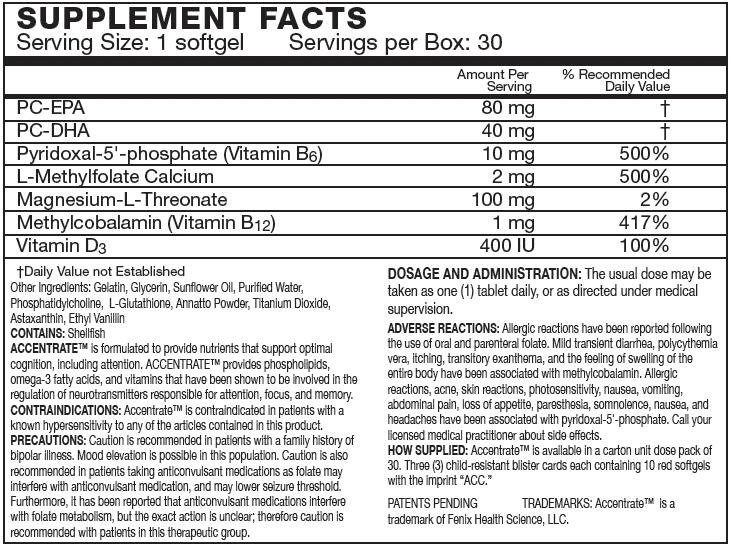
What is Accentrate?
ccentrate® contains Brain Ready® Nutrition providing a healthy, unique combination of high-quality lipids and vitamins help support cognitive wellbeing. Accentrate® is a healthy, scientifically-formulated combination of lipids and vitamins. It is designed to address lipid imbalances and support proper regulation of neurotransmitters needed for optimal cognition, including memory, attention, and focus.
Why do the EPA & DHA doses seem low?
Oftentimes individuals looking to support cognitive function are recommended to take Omega-3 fatty acids (O3FA), specifically EPA and DHA. Most EPA and DHA supplements are derived from fish oil. When EPA and DHA are extracted from fish oil, the O2FA are either in triglyceride form, or ethyl ester form. These are apples to oranges when compared to the phospholipid form. What is the difference?
Real Reviews from Real Customers
 25 Reviews
25 Reviews

Tammy


Oliva


Jill


Mariano


Helen


Pelac


Tammie


April


Stephanie


Kassie J


Vincent


Melissa


M Tucker


Linda W


Kendra O.


Jen P


Corrie


Cherie M


Cherie M


Twinkie Mom


Nikki


Rebecca



